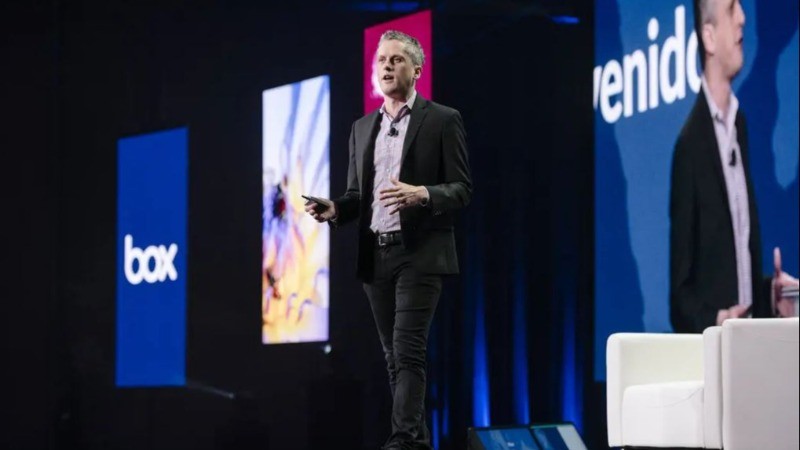
The tech industry is holding onto cautious optimism that President-elect Trump may ease restrictions on high-skilled immigration during his second term. Prominent figures like Elon Musk and Mark Zuckerberg, who are now part of Trump’s inner circle, have been vocal about the need for reform. However, concerns remain due to Trump’s previous restrictive actions and the return of influential advisors like Stephen Miller.
Aaron Levie, CEO of Box, a cloud software company, expressed his hope that America will soon open its doors to more highly educated immigrants, particularly skilled workers like the software engineers he hires. Levie shared his thoughts on the social platform X, stating that America’s immigration policies for skilled workers are “not responsive to the market,” and suggested that Elon Musk, with his influence in Trump’s circle, could help address the issue. “I agree,” Musk replied, sparking a conversation with tech workers and executives who shared their own struggles with visa applications for themselves and their employees.
Levie emphasized that welcoming more high-skilled immigrants could be one of the most impactful ways to keep America competitive globally. However, despite the tech industry’s argument, past experiences show a more cautious outlook. During his first term, Trump did not expand skill-based immigration programs. Instead, his administration took a stricter approach, limiting access to visas for educated workers and increasing scrutiny on visa applications.
Shev Dalal-Dheini, senior director of government relations at the American Immigration Lawyers Association, acknowledged the possibility of some change but warned that Trump’s administration still faces opposition from those advocating for more restrictive policies.
Levie and other advocates point to tech giants like Musk and Zuckerberg, who have benefitted from skilled immigration programs in their companies, as key figures who could push for changes. Musk, for example, secured 724 H-1B visas for Tesla workers in 2024. Zuckerberg, once a strong proponent of immigration reform, met with Trump at Mar-a-Lago and his company donated $1 million to Trump’s inauguration.
Trump has expressed support for legal immigration reform in interviews and during his campaign. In a June podcast, he mentioned making it easier for educated foreigners to work in the U.S., even suggesting that college graduates should receive a green card with their diploma.
Despite Trump’s previous stance on immigration, those familiar with his approach believe that he may be open to expanding opportunities for skilled workers, although his administration has generally focused on limiting illegal immigration.
Mark Krikorian, executive director of the Center for Immigration Studies, emphasized that Trump is not ideologically opposed to skilled immigration but advocates for a legal, merit-based system.
Tech companies, however, argue that loosening restrictions on high-skill immigration would boost America’s global competitiveness. In contrast, Trump’s first term saw tighter controls on skilled visas, with increased denial rates and temporary visa suspensions. The H-1B visa cap, set at 85,000 since 2006, remains highly competitive, with 470,000 applications for the 2025 fiscal year.
The case for more skilled immigration is clear, with studies showing that immigrant inventors significantly contribute to innovation, improving the performance of U.S.-born colleagues. However, there is public concern about the misuse of the H-1B program by companies replacing American workers, which has further complicated the debate.
Vivek Chilukuri, senior fellow at the Center for a New American Security, stressed that competition with China makes it essential for the U.S. to attract top tech talent, arguing that immigration is a strategic advantage.
Yet, challenges remain, as many proposals for reform have failed to gain traction in Congress. Linda Moore, CEO of TechNet, the tech industry association, remains hopeful that Trump’s focus on artificial intelligence and U.S. manufacturing could lead to standalone immigration measures for skilled workers.
For now, businesses are bracing for possible delays and denials in visa applications, as many expect the administration to maintain tight controls. Despite this, Levie’s optimism, along with the influence of tech leaders close to Trump, offers a glimmer of hope for change.